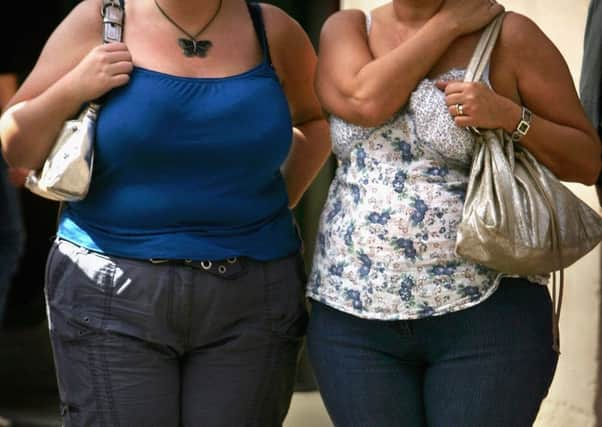Stephen Jardine: Obesity is so bad it's damaging the economy


If Brexit offers us anything positive, it is surely that we will no longer be repeatedly told we are the fattest country in the EU. From next March that responsibility will pass to someone else and we can all celebrate with a bridie, a doughnut and a pint of lager.
However, some things won’t change. Scotland will remain the most overweight part of the UK and, according to new information this week, that shows no signs of changing.
Advertisement
Hide AdAdvertisement
Hide AdReleasing two new reports on the Scottish diet, Food Standards Scotland concluded hardly any progress is being made. Targets to cut junk food and encourage us to eat better are still being missed and there is little indication that education and public health campaigns are working. Latest figures show two-thirds of adults and almost a third of children here are overweight or obese.
The number of people living in Scotland with Type 2 diabetes has increased by 29 per cent since 2010 to more than 289,000. Being overweight or obese is the single biggest risk factor for developing the disease which already costs the NHS in Scotland £90 million a year.
The head of Food Standards Scotland (FSS) says diabetes could “cripple the NHS” unless action is taken to prevent a projected 40 per cent rise in the coming years. “Any country will not cope with that level of obesity. So it’s not just a health issue, it’s increasingly becoming an economic one,” said FSS chief executive Geoff Ogle.
Despite having the knowledge and information we need, we seem unable or unwilling change our habits. Five-a-day dietary advice has been in place for years as have safe-drinking guidelines and warnings about sugar and saturated fat, but we keep on digging an early grave with our knives and forks.
But while the headlines are depressing, within the new reports are glimmers of hope, particularly the rise in public concern. The number of Scots worried about unhealthy diets and supporting action to tackle the problem has risen from 50 to 64 per cent. For a nation that used to take a perverse pride in eating deep fried anything, that’s a start.
When it comes to solutions, two-thirds of Scots now believe restaurants should display calories on menus with 49 per cent supporting bans on promotions of unhealthy products such as confectionary. This information will embolden the Scottish Government and could lead to much more radical proposals in the diet and obesity strategy which is currently in the pipeline. Ranging from restrictions on advertising to strict rules on supermarket promotions and halting junk food businesses operating near schools, the measures are likely to be drastic.
But this isn’t just a job for Government. Retailers need to play their part, supporting a narrowing of the price gap between healthy and unhealthy foods. Employers should be encouraging staff to consume good food in the workplace. Football clubs should use their influence to demonstrate good food choices. And then there is us. Lots of factors influence diet but at the end of the day only we put the food in our mouths and, with that, comes consequences.
